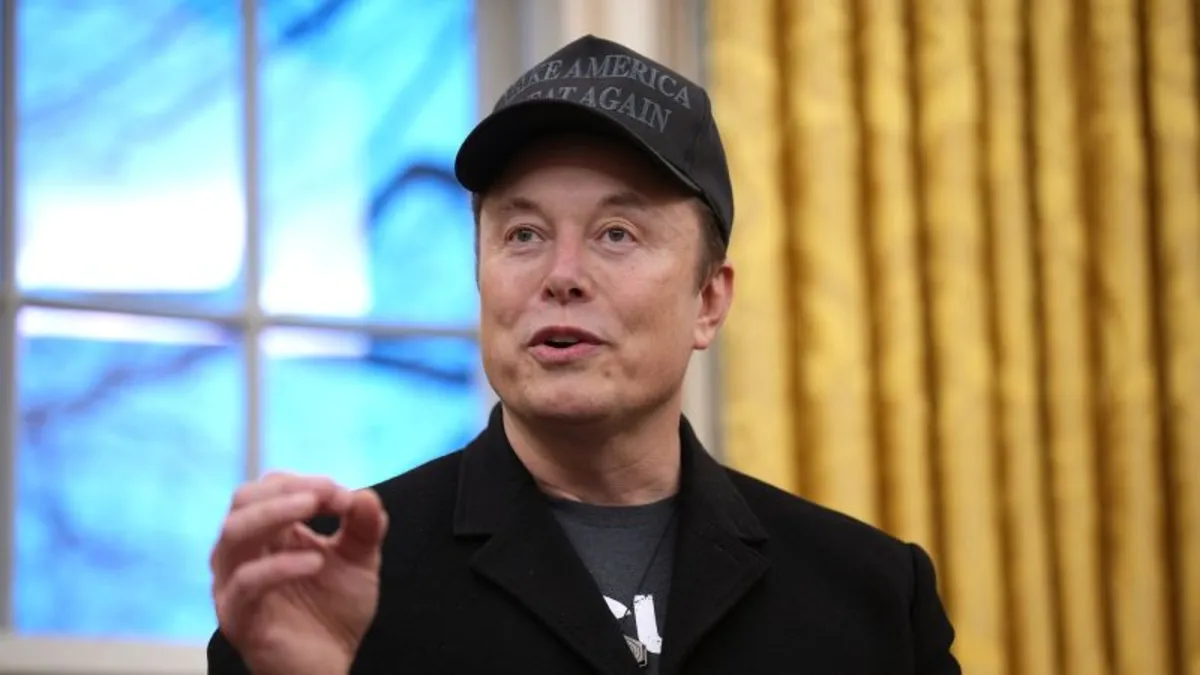
A significant rift surfaced on Sunday between some of President Donald Trump’s top agency leaders and Elon Musk, the billionaire tasked with reforming the federal government. The disagreement centers on Musk’s directive that all federal employees must report their weekly accomplishments or face termination.
By Sunday evening, leaders from the Pentagon, Federal Bureau of Investigation (FBI), State Department, Department of Homeland Security (DHS), and Department of Energy had advised their staff not to respond to an email from the Office of Personnel Management (OPM) sent Saturday afternoon. The email, titled “What did you do last week?”, sparked confusion and resistance among federal workers.
Some managers, such as those at the Department of Health and Human Services (HHS), initially instructed compliance but later reversed their guidance. Others advised their teams to wait until Monday for further instructions.
The White House did not comment on the apparent discrepancy between Musk’s demands and the guidance from agency heads. This situation added another layer of uncertainty to the already unsettled federal workforce, setting the stage for a confrontation between Trump-appointed agency heads and Musk, who appears to disregard traditional federal protocols.
Elon Musk showed no signs of backing down, expressing his frustration on X, the platform he owns. He questioned why parts of the government found his directive excessive. Meanwhile, senior officials across agencies scrambled to offer guidance to their employees.
Kash Patel, newly appointed FBI director, was among the first to advise against responding to the OPM email. He emphasized that the FBI would follow its internal review processes. Similarly, Darin Selnick, acting Undersecretary of Defense for Personnel and Readiness, stated the Department of Defense would adhere to its procedures.
Many agencies, primarily those focused on national security, followed suit, advising staff not to respond to the OPM email. A senior Defense Department official criticized the email as undermining the chain of command, expressing disbelief at the situation.
DHS personnel were told by R.D. Alles, Deputy Under Secretary for Management, not to respond, as DHS management would handle the response. The State Department issued similar guidance to its workforce, emphasizing that no employee is required to report activities outside their departmental chain of command.
Initially, the Department of Health and Human Services directed employees to respond to the email by Monday night. However, this guidance was later retracted, advising staff to pause their responses. Employees at the Centers for Disease Control and Prevention, National Institutes of Health, and the Food and Drug Administration, part of HHS, were similarly instructed to wait for further guidance.
As federal employees grappled with the upheaval, it became clear that the impetus originated from Trump’s public call for Musk to intensify his efforts to reform the federal government. Musk’s subsequent plan demanded federal workers provide a weekly report of their accomplishments, threatening termination for non-compliance.
Despite the confusion, Trump maintained his support for the plan, using social media to mock the situation with a meme. This episode highlighted Musk’s significant influence over federal operations, raising concerns among some senior officials and Republicans about the extent of his power.
Republican Senator John Curtis of Utah expressed concerns about the plan's potential impact on federal employees, emphasizing the need for compassion. He argued against the notion that aggressive cuts must be accompanied by harsh measures.
This unfolding situation underscores the ongoing tension between Trump’s administration, Musk’s reform efforts, and the federal workforce. The long-term implications remain uncertain as agency leaders and employees navigate this unprecedented directive.